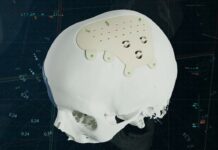Intelligens to use its artificial intelligence engine to design new alloy for 3D printing projects
Intelligens, a spin-out from the University of Cambridge (UK) plans to design new materials for 3D printing projects using artificial intelligence. Intelligens owns an Artificial Intelligence (AI) toolset, named Alchemite™, that can train deep neural networks from sparse or noisy data.
So far, most of the applications of the use of AI in AM deal with how to improve the performance of the 3D printing process. Intelligens is bringing something unique with its machine learning algorithm.
Indeed, the team of this spin-out collaborated with commercial partners and the Stone Group to design a new nickel-based alloy for direct laser deposition, without the need for expensive, speculative experiments.
They have been able to save about 15 years and $10m (USD) in R&D expenditure.
The development of materials using conventional techniques vs artificial intelligence
For scientists, designing new alloys for direct laser deposition is a tough mission when using traditional research techniques; not to mention that they take time and money, and often lead to lots of trial and error. Researchers realized that only ten nickel-alloy compositions are compatible with laser deposition, which did not allow the use of some data for further investigations.
The process has been really facilitated with the advent of new technologies. Scientists discovered the potential of artificial intelligence engine that speeds up the overall material selection process. According to Intelligens, the engine can exploit data that are as little as 0.05% complete, can gather various types of information, determine properties of new alloys and predict how they would function in real-life application scenarios.
For this specific use case, researchers wanted the alloy to integrate processability, cost, density, phase stability, creep resistance, oxidation, fatigue life, and resistance to thermal stresses among its properties. They were satisfied with the results since the new alloy best fits direct laser deposition.
Gareth Conduit, Chief Technology Officer at Intellegens, and a Royal Society University Research Fellow at the University of Cambridge, said: “With deep learning capabilities that can pinpoint property-to-property relationships very quickly, Alchemite™ was uniquely positioned to assist with this project. Using machine learning, Alchemite™ enabled the team to use a large database of thermal resistance measurements to guide the extrapolation of just ten data entries of alloy processability. From that information we were able to shortlist material combinations that were most likely to deliver the right characteristics. The results speak for themselves. Thanks to Alchemite™, the team now has a new alloy at its disposal and has saved vast amounts of time and money on R&D.”
For further information about 3D Printing, follow us on our social networks and subscribe to our newsletter! Would you like to be featured in the next issue of our digital magazine? Send us an email at contact@3dadept.com






